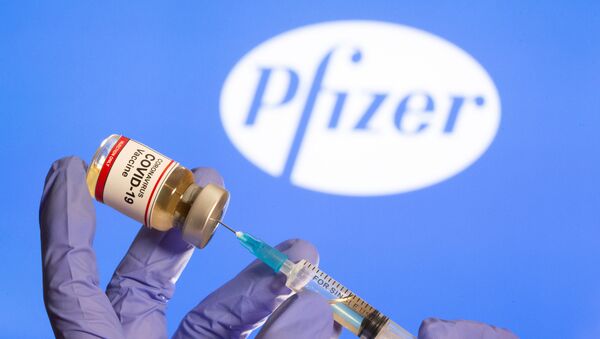The US and German companies have submitted the application for conditional approval of their vaccine, which is said to be 95% effective against coronavirus, with the European Medicines Agency (EMA) on Monday.
The submission comes as another step of the rolling review process the companies have initiated with the agency on 6 October.
EMA's Committee for Medicinal Products for Human Use is currently evaluating preliminary data on these COVID-19 vaccines using its rolling review procedure:
- BNT162b2 by BioNTech, in collaboration with Pfizer
- ChAdOx1-SARS-CoV-2 by AstraZeneca, in collaboration with the University of Oxford
-
mRNA-1273 by Moderna Biotech Spain, S.L.
The rolling review of these vaccines evaluates first batches of data and will continue until enough evidence is available to support a formal marketing authorisation application.
"EMA cannot reach a conclusion on the safety and effectiveness of these vaccines until the developer has submitted this evidence and EMA has assessed it. This evidence includes results from large-scale clinical trials already underway, which provide information on how effective the vaccines are in protecting people against COVID-19. The assessment also includes all available data on the vaccines' safety that emerge from these studies, as well as data on their quality. This includes information on the vaccines’ ingredients and on the way they are produced," the agency said.
Pfizer's move comes at the time when it's also seeking the emergency use approval from the US Food and Drug Administration (FDA).
Pfizer’s competitor, pharma giant Moderna, announced its intention to ask US and European regulators to allow emergency use of its COVID-19 vaccine on 30 November. It has filed its US application and said it would also apply for conditional approval from the EMA.
The EMA has last week endorsed a statement by the International Coalition of Medicines Regulatory Authorities (ICMRA) that urges all stakeholders, including vaccines researchers and investigators, academia, regulators and the pharmaceutical industry, to continue COVID-19 vaccine trials beyond the time when the pre-defined cases of COVID-19 disease for final analysis in a trial have been reached.
According to the agency the process can provide important additional and more precise information on longer-term safety and efficacy of a vaccine against COVID-19.


